A whole list of dinners and celebrations were hosted throughout the month of the Sultan of Johor’s coronation.
Thousands were invited to the extravagant events, and it left behind an almighty mess few can clean up. The brilliant couple behind Kedai Dhoby Shanghai — Chiew Kek Whye and Cindy Chow — is one of them.
Chiew and Chow painstakingly hand washed all the napkins and tablecloths used during the coronation, and ironed them after that with a vintage iron which weighs around 10kg. According to Chiew, it’s the only way to get that pristine, perfectly pressed look.
And that’s why the old couple had to wake up at 4am every day for an entire week to clean the thousands of items being sent to their tiny shop on Jalan Tan Hiok Nee, Johor Baru — and they had to finish every batch within 48 hours.
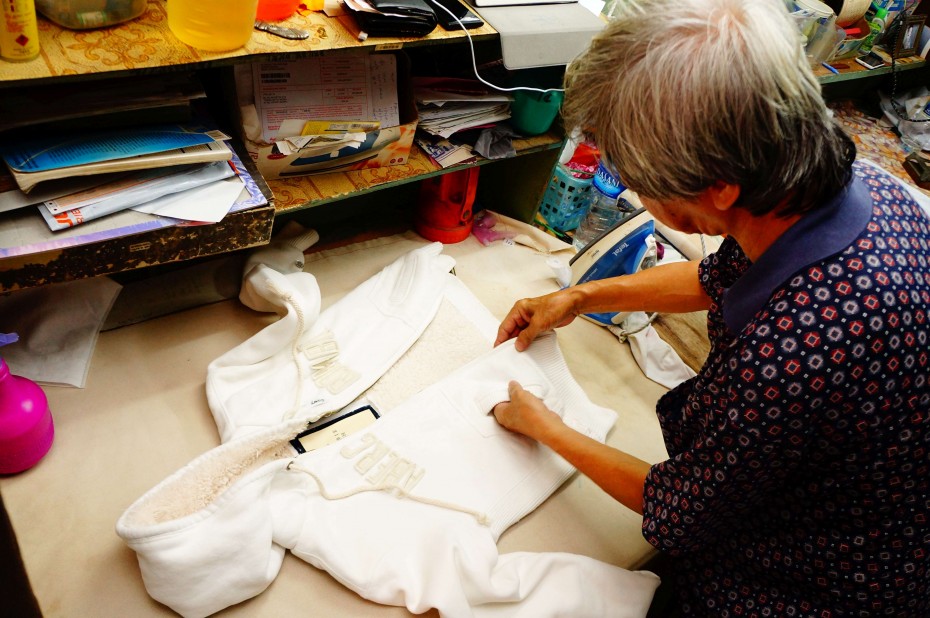
Chiew and his wife does all their customers’ laundry expertly by hand. They have no machines, and no helpers.
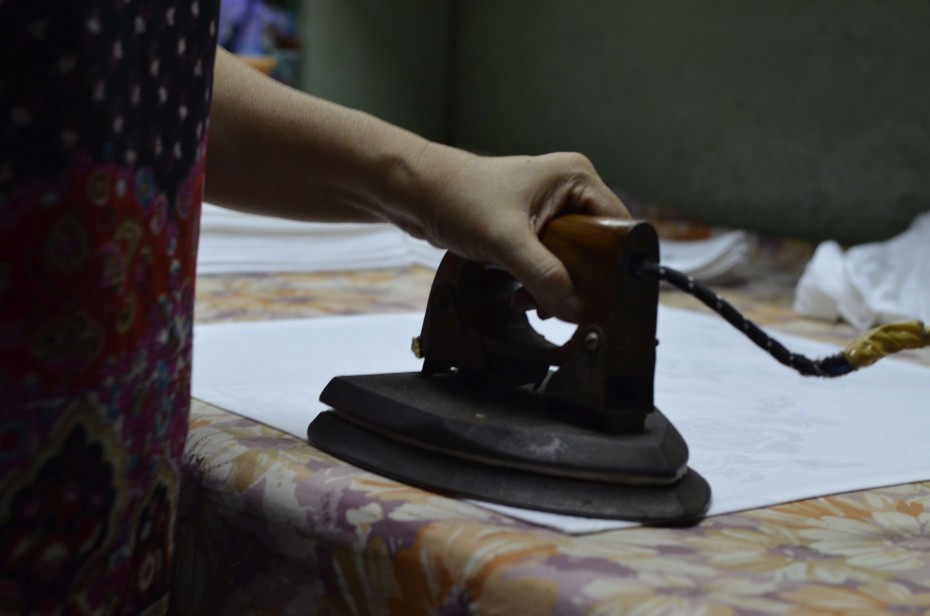
The vintage iron Chiew and Chow use. It’s incredibly heavy, and they say it’s the only way to get tough fabrics — like the Sultans napkins — perfectly pressed.
They have no machines in their shop, and no helpers either.
“We had to stop taking work from other customers during the busiest week, but some didn’t mind, even when we told them they would have to wait for a month!” said Chow.
You’d imagine it’d be pretty stressful doing the Sultan’s laundry, but for Chiew and Chow, who were still ironing napkins with the Sultan’s embroidered emblem when the BRATs visited their shop, it’s no big deal. Chiew and his father have done laundry for the last four Sultans!
“There’s no pressure. We treat them like normal customers,” said Chiew.
Perhaps that’s not quite true, because when Sultan Ibrahim Sultan Iskandar was the Agong, he still insisted on sending his laundry to Chiew from his palace in KL. The Agong flew in on a helicopter to collect the laundry, with Chiew personally delivering it to the helipad. Not your average laundromat customer.
But then again, it’s not hard to picture the couple going through the same lengths for any of their customers, if the testimonies of their regulars are anything to go by.
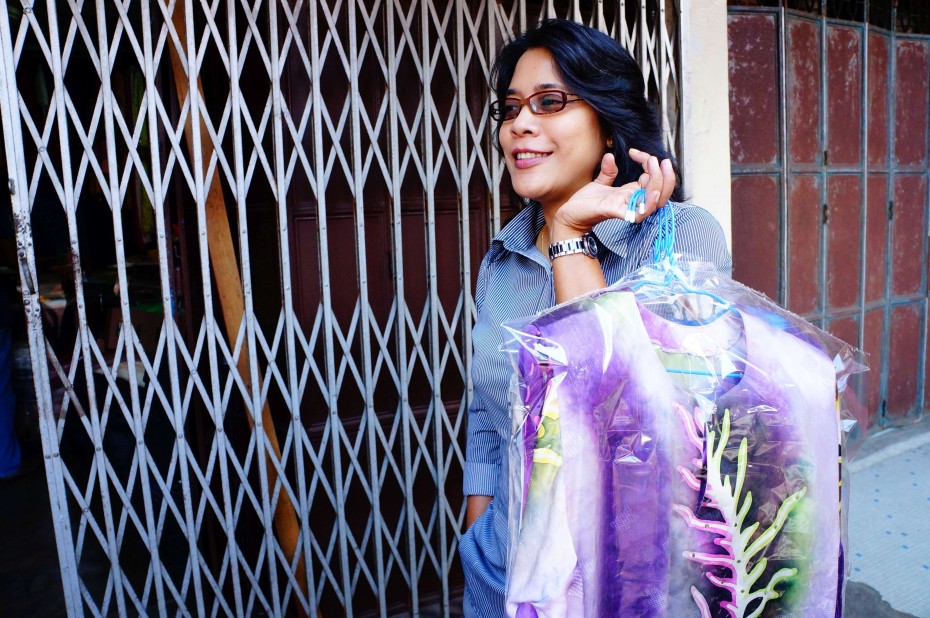
One of the loyal customers at Kedai Dobi Shanghai. Many have sent their laundry here for decades, even with faster, machine-run laundromats around.
Eza, 49, and her family have been loyal customers since she was a schoolgirl, and her late father was the one who first started sending laundry to Kedai Dhoby Shanghai. “Through the years, we’ve never had a problem with their service,” she said.
They have also many VIP customers, including a Datuk from Segamat who drives to Johor Baru every month with a huge bag of laundry. “Even I asked him: ‘why go through all the hassle?’” said Chow with a laugh.
While sentimentality and the couple’s friendly nature could be among the reasons why they have such loyal customers, the quality of their work is no doubt the biggest factor.
They wash everything by hand. Apart from the old iron, their tools include a bottle of baby oil to lubricate the iron’s surface, and a can of lighter fluid.
“That’s to remove the really tough stains,” said Chow. “We can remove almost any kind of stain, except mangosteen. That’s what I tell the Sultan — apa-apa pun boleh cuci, tapi manggis, itu saya tak boleh tolong.”
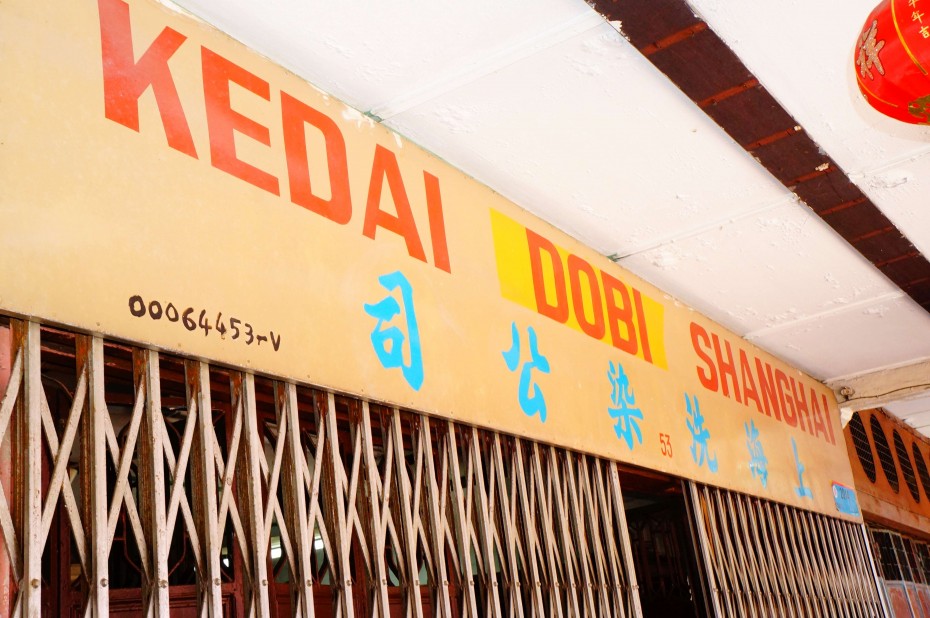
The next time you are in Johor Baru, look out for this signboard on Jalan Tan Hiok Nee. The upper floor of the shophouse was used to hide locals wanted by Japanese troops during World War II.
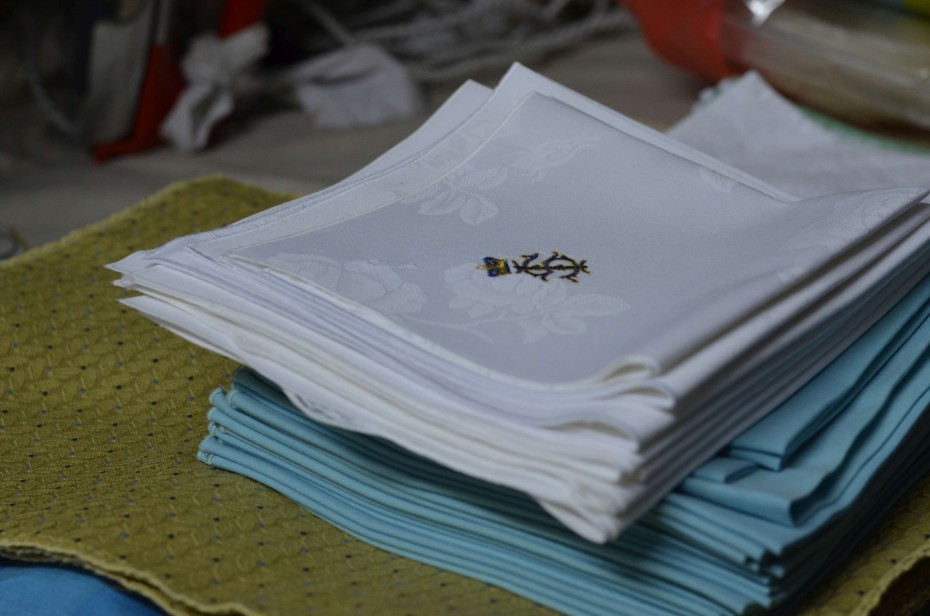
A stack of napkins in the shop, bearing the Sultans emblem. Chiew and Chow had to start work at 4am every day during the Sultan’s recent coronation, but they said it was no big deal — they treat the Sultan like “any other customer”.
Chiew’s father had taken over the business in 1936 from a Chinese woman, who migrated back to China to avoid the Japanese occupation during World War II.
During those difficult years, his father would hide people who were wanted by the Japanese in the upper floor of the shop. He fed them and taught them how to help with the business.
His mother, who speaks Japanese, worked as a translator for the Japanese, and she often acted as a mediator between the locals and the troops.
Chiew dropped out of school at 14 to help his father and he left briefly to go sailing later on; but once he met Chow, he settled down and decided to continue his father’s legacy.
Even though business has never been better, the couple are insistent — they don’t want any of their four children to follow in their footsteps. “It’s not an easy life,” said Chiew.
They won’t sell the shop, but they will close down the business.
Chiew said: “We’ll just keep going on for as long as we can. Maybe for another ten years.”
When the day comes for Kedai Dhoby Shanghai to finally close its old shutters for good, it will be a sad moment not only for its customers, but for every Malaysian who cares about our history, culture and traditions.

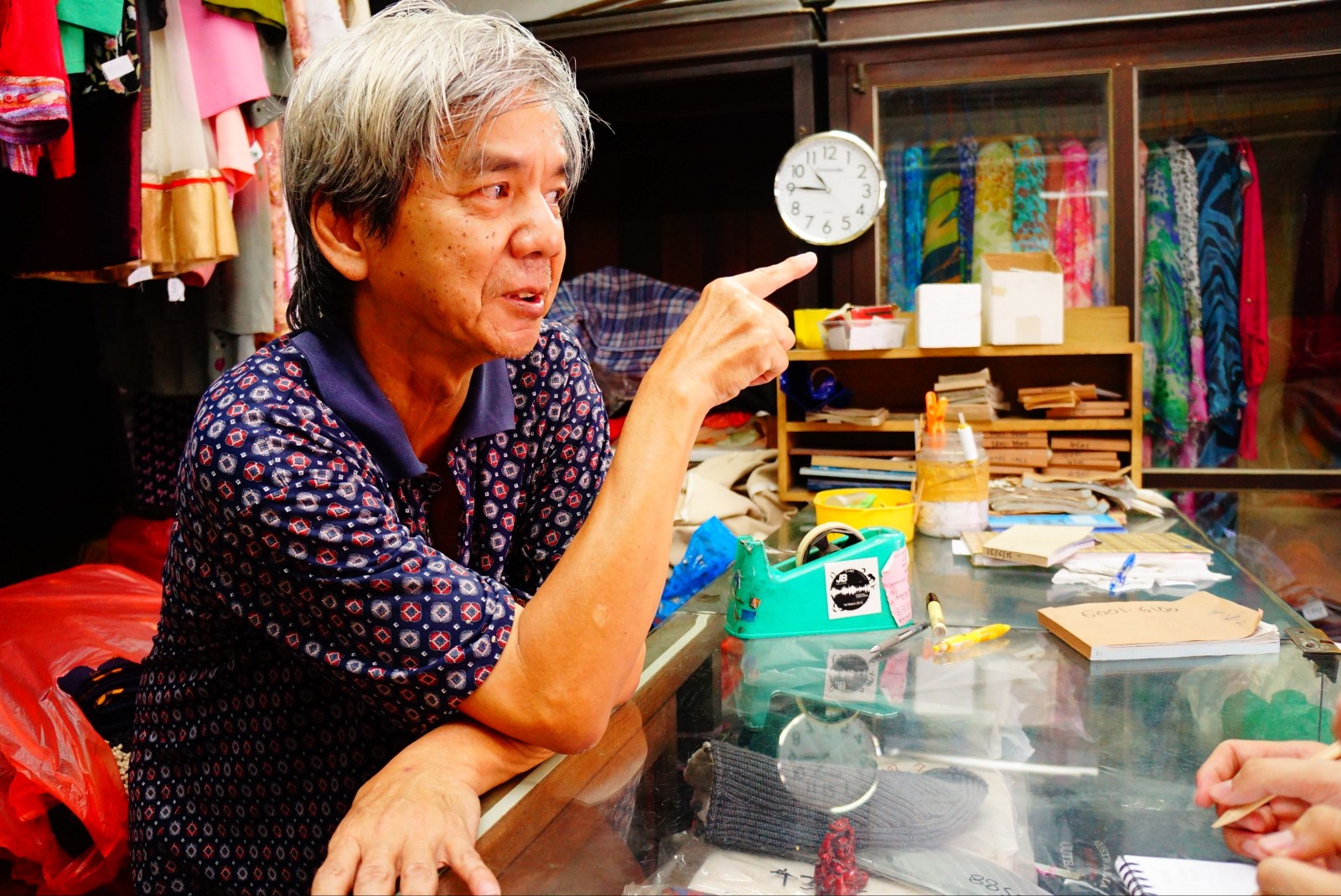












Tell us what you think!